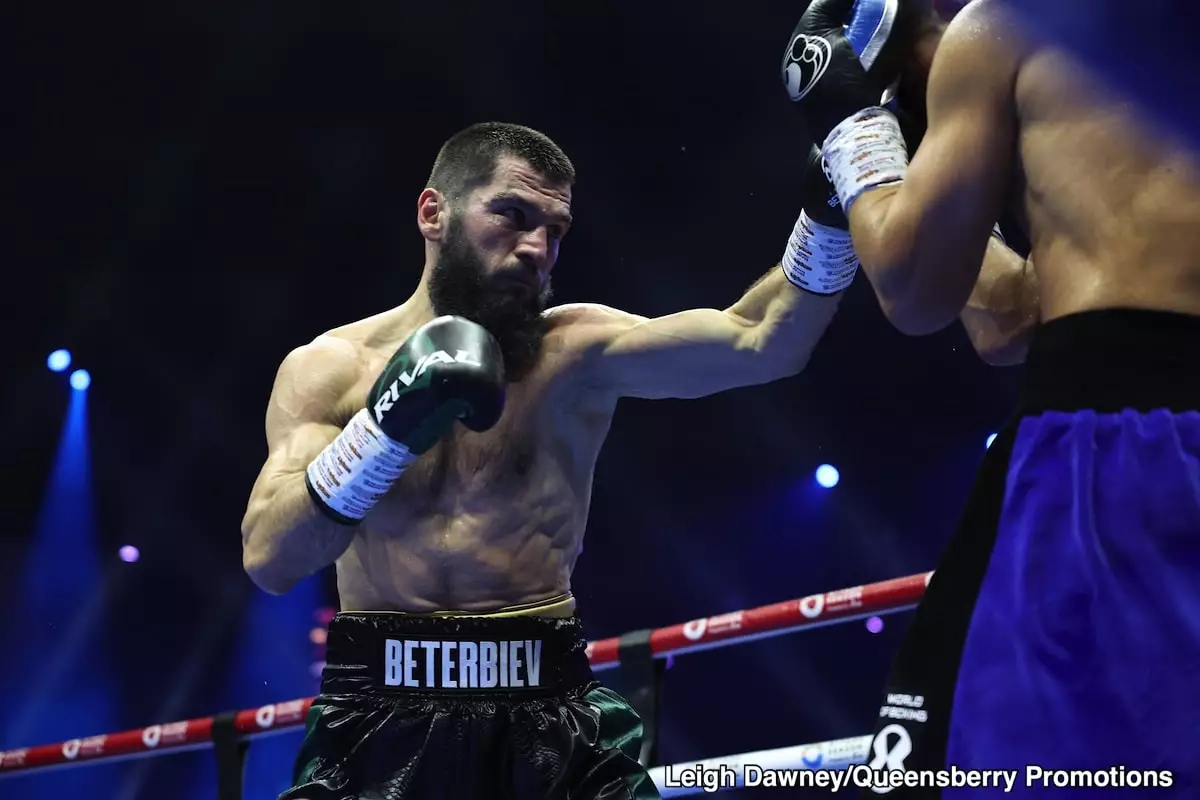Prominent boxing promoter Bob Arum is expressing intense dissatisfaction with the recent directive from the International Boxing Federation (IBF). The IBF has mandated that Artur Beterbiev, the undisputed light heavyweight champion sporting a flawless record of 21 wins (20 by knockout), must defend his title against German contender Michael Eifert, whose credentials include a record of 13 wins and only 1 loss. Arum characterizes Eifert as a „non-entity,“ raising questions about the legitimacy of directing Beterbiev to defend his championship against someone with limited recognition in the boxing community.
Arum’s ire stems from the timing of this ruling. Just days after Beterbiev’s triumphant win over Dmitry Bivol, the promoter is baffled by the idea that Beterbiev is required to defend his title against a lesser-known opponent. Such demands can arguably diminish the significance of holding a championship title, especially at a point when Beterbiev is riding high on a wave of momentum after a significant victory. Arum’s criticisms illuminate the ongoing tensions between promoters and regulatory bodies in boxing, a sport often mired in bureaucratic complexities.
While the IBF’s decision looms over Beterbiev, speculation abounds regarding potential future matchups that could entice fans and critically engage the light heavyweight division. His Excellency Turki Alalshikh has been vocal about facilitating a rematch between Beterbiev and Bivol, especially since some observers deemed their last encounter controversial. However, the practicalities of such a rematch are clouded by questions about viewer interest. Many fans may be more eager to see Beterbiev face renowned fighters like Canelo Alvarez or David Benavidez.
Indeed, Canelo and Benavidez represent lucrative options for Beterbiev. A showdown with Canelo, in particular, holds immense potential for massive pay-per-view sales, given the latter’s extensive fan base and marketability. In contrast, the prospect of a rematch with Bivol does not generate the same excitement due to perceptions of Bivol’s defensive style, which many found unengaging during their previous encounter. Such dynamics within the light heavyweight division highlight the intricate balance between competitive integrity and the commercial pressures that shape boxing today.
In his criticism of the IBF policy, Arum noted the strains placed on champions whose achievements are suddenly complicated by mandatory defenses against less notable opponents. His assertion, “It’s totally insane… It’s ludicrous,” resonates deeply with fans who yearn for high-stakes bouts rather than obligatory contests that do not interest the wider audience. This commentary raises broader concerns regarding the regulations governing boxing and how they often contradict the motivations of promoters, fighters, and fans alike.
Ultimately, while the IBF’s ruling may underpin the sport’s regulatory framework, it also serves as a catalyst for discussions about how the governing bodies can align their decisions with the collective aspirations of the boxing community. As the sport evolves, the balance of power between boxing authorities and promotional entities like Top Rank will be crucial in determining the future landscape of light heavyweight boxing.


Napsat komentář